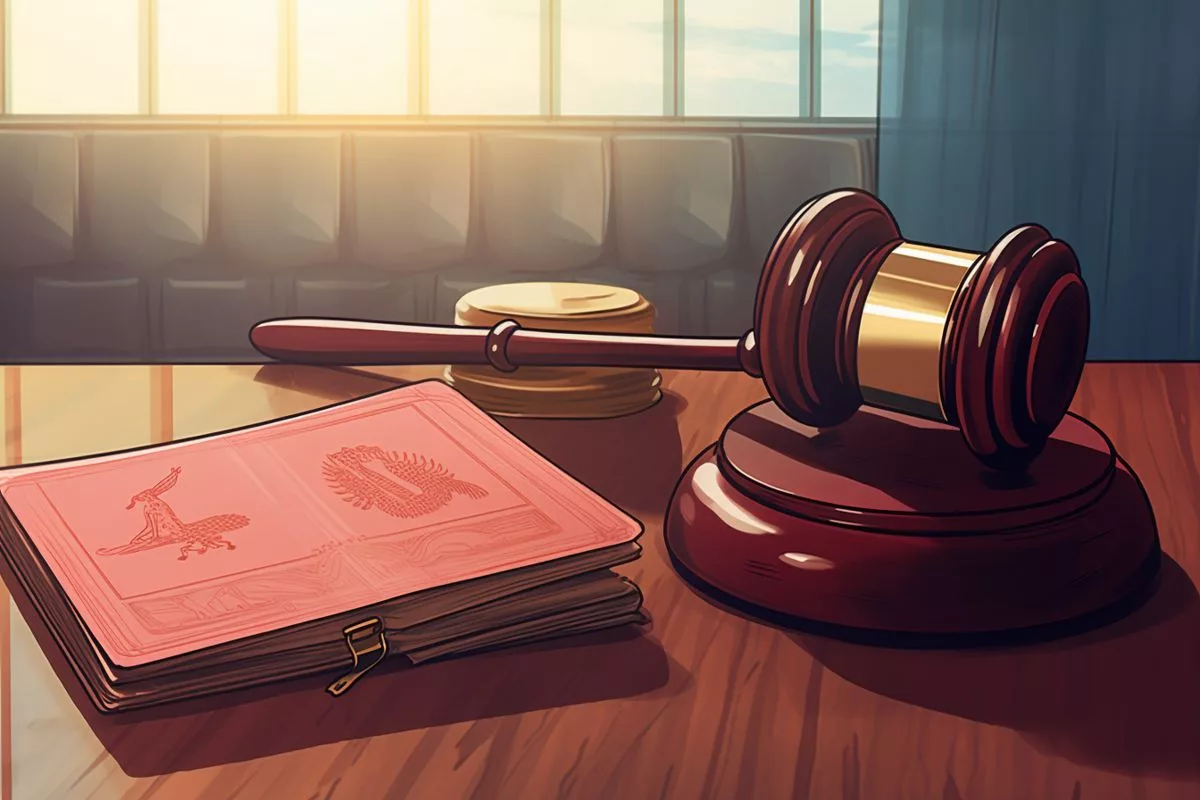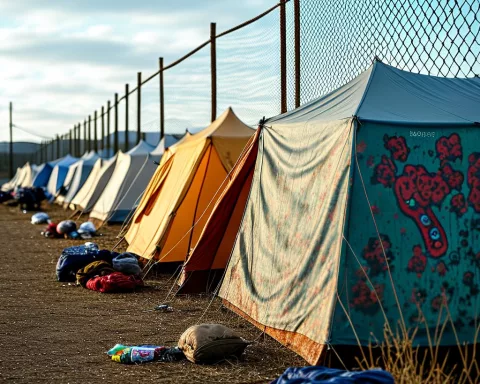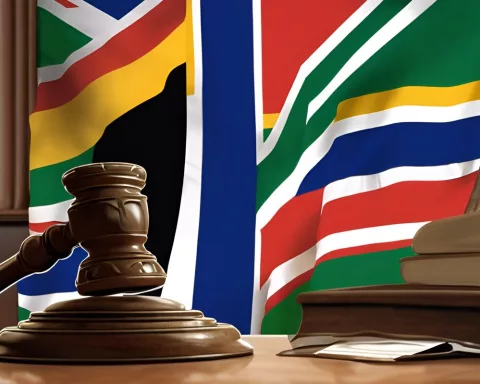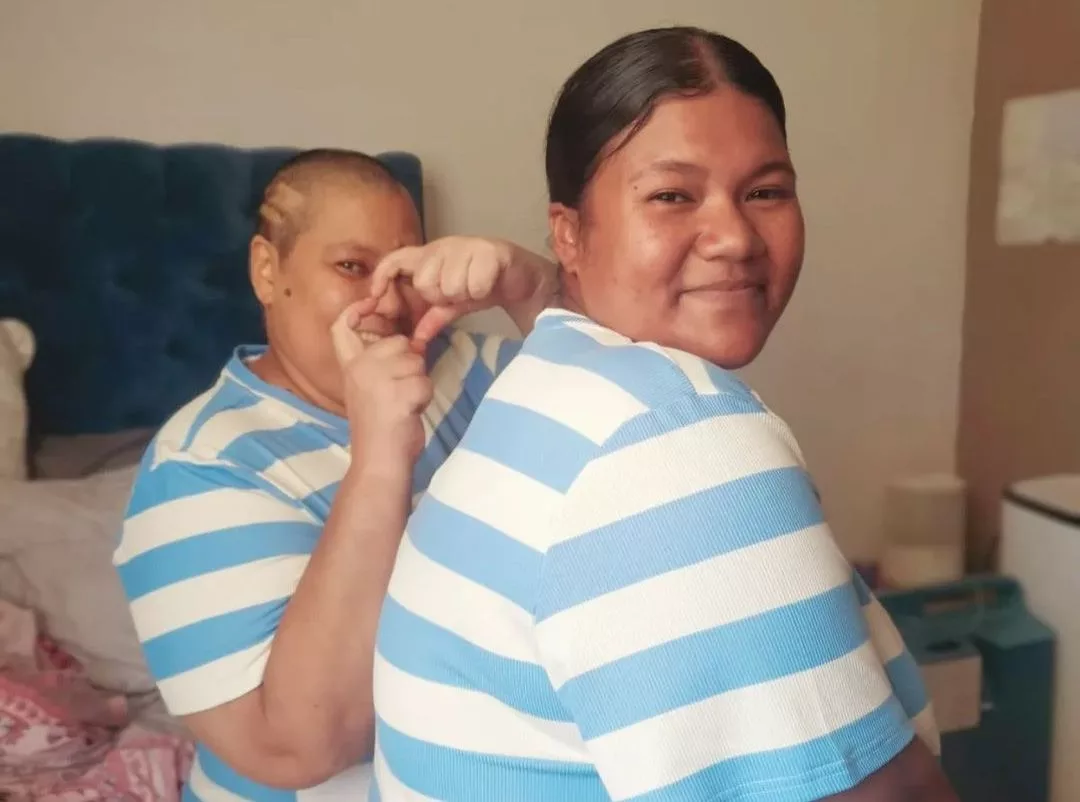The South African Constitutional Court has made a significant and unanimous decision to nullify certain sections of the Refugees Act, which blocked asylum seekers’ access to essential services and violated their fundamental human rights. The invalidated provisions put them and their dependents at risk of arrest, detention, and deportation. The ruling symbolizes the resilience of refugees and South Africa’s commitment to preserving their dignity and rights, positioning the country’s legal system as a beacon for human rights. This landmark verdict marks a new dawn for refugee rights in South Africa.
A Landmark Verdict: South Africa’s Constitutional Court’s Progressive Ruling on the Refugees Act
In a unanimous decision, the South African Constitutional Court nullified certain sections of the Refugees Act that blocked asylum seekers’ access to critical services and undermined their fundamental human rights. The invalidated provisions put them and their dependents at risk of arrest, detention, and deportation. The ruling symbolizes the resilience of the refugee population and South Africa’s commitment to preserving the dignity and rights of asylum seekers and refugees, positioning its legal system as a beacon for human rights.
Section 1: Breaking Ground: South Africa’s Significant Ruling
In a significant judgment, the South African Constitutional Court has unanimously nullified certain sections in the Refugees Act. The invalidated clauses previously dictated that asylum seekers who did not renew their visas within a month of its expiration have permanently discarded their asylum applications. Acting Judge Ashton Schippers, the author of the decision, shed light on the broader discussion surrounding refugee rights and their vulnerable status within societal structures.
This monumental decision highlights the delicate balance between the rights of asylum seekers and the administrative challenges posed by their existence. The invalidated provisions essentially blocked their access to critical services such as banking, education, and healthcare, thereby undermining their fundamental human rights. Further, these circumstances also put them and their dependents at a continual risk of arrest, detention, and deportation. “Just because a visa hasn’t been renewed,” Judge Schippers commented.
Section 2: The Legal Journey: From High Court to Constitutional Court
The case progressed to the country’s supreme court following an earlier judgment by the Western Cape High Court. It declared the relevant clauses in the Act as unconstitutional. The Scalabrini Centre of Cape Town, with the assistance of the Consortium for Refugees and Migrants South Africa (CoRMSA), spearheaded this application.
Interestingly, during the proceedings at the High Court, the Home Affairs minister and director-general were against the application. They claimed that the visa procedure put a heavy administrative load on department officials. They further argued that numerous applications did not originate from genuine asylum seekers. The Act’s provisions, they claimed, aimed to reduce the backlog of dormant cases and ensure that asylum seekers actively pursued their applications.
However, there was a significant shift in the defendants’ position when the case reached the Constitutional Court. They concurred that South Africa had an obligation to admit refugees in accordance with international laws and the principle of non-refoulement. This principle prohibits the forced return of refugees to a country where they may face persecution.
Section 3: Unpacking the Implications of the Invalidated Provisions
In light of these defenses, Judge Schippers observed that refugees represented an “especially vulnerable group” requiring compassion. He argued that the invalidated provisions compromised the protection of asylum seekers from refoulement. Asylum seekers could be sent back to their home countries they had fled from, solely based on their visa renewal status, without a thorough inquiry.
CoRMSA provided evidence of 394 asylum seekers who were considered illegal immigrants after their applications were deemed abandoned. This data underscored the real-world consequences of these provisions. Children, in particular, were susceptible to these bureaucratic complexities that were beyond their control. For instance, cases included a child who could not attend school and another who was unable to register for matric during the 2020 academic year.
Section 4: A New Dawn for Refugee Rights
Judge Schippers criticized the provisions as illogical and discretionary. He stated that they added nothing to legitimate governmental objectives and that the assumptions behind these provisions contravened the core principle of refugee law. As per this principle, asylum seekers must be treated as potential refugees until the legitimacy of their claims is conclusively determined through due process.
The Constitutional Court endorsed the High Court’s assertion of unconstitutionality, retroactive to 1 January 2020. This date marked when the contentious provisions were implemented and represents a significant turning point in the history of refugee rights in South Africa.
This ruling symbolizes the resilience of the refugee population and the relentless efforts of organizations such as the Scalabrini Centre and CoRMSA. It reaffirms the commitment to preserve the dignity and rights of asylum seekers and refugees. It also positions South Africa’s legal system as a beacon for human rights.
1. What was the South African Constitutional Court’s ruling on the Refugees Act?
The South African Constitutional Court made a significant and unanimous decision to nullify certain sections of the Refugees Act, which blocked asylum seekers’ access to essential services and violated their fundamental human rights.
2. Why were the invalidated provisions in the Refugees Act deemed unconstitutional?
The invalidated provisions compromised the protection of asylum seekers from refoulement, as asylum seekers could be sent back to their home countries they had fled from, solely based on their visa renewal status, without a thorough inquiry.
3. What was the Home Affairs ministry’s position on the case?
During the proceedings at the High Court, the Home Affairs minister and director-general were against the application, claiming that the visa procedure put a heavy administrative load on department officials and that numerous applications did not originate from genuine asylum seekers. However, there was a significant shift in the defendants’ position when the case reached the Constitutional Court.
4. How did the invalidated provisions in the Refugees Act affect asylum seekers?
The invalidated provisions essentially blocked asylum seekers’ access to critical services such as banking, education, and healthcare, thereby undermining their fundamental human rights. Further, these circumstances also put them and their dependents at a continual risk of arrest, detention, and deportation.
5. When did the invalidated provisions in the Refugees Act come into effect?
The invalidated provisions in the Refugees Act came into effect on 1 January 2020.
6. What is the significance of the Constitutional Court’s ruling on refugee rights in South Africa?
This landmark verdict marks a new dawn for refugee rights in South Africa and positions the country’s legal system as a beacon for human rights. The ruling symbolizes the resilience of refugees and South Africa’s commitment to preserving their dignity and rights.












